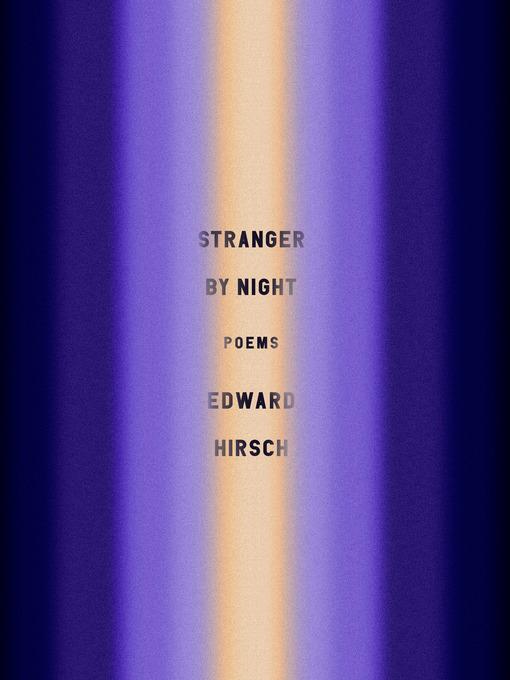
Stranger by Night
Poems
- اطلاعات
- نقد و بررسی
- دیدگاه کاربران
نقد و بررسی

Starred review from December 16, 2019
With this tender and unflinching 10th collection, Hirsch (Gabriel) balances heartfelt elegy with a celebration of the everyday. In these 48 poems of sensory remembrance, any door might open on the past: “Yesterday I climbed the stairs/ and took the ‘L’/ to 1965 /where I was stuck/ in the heart/ of downtown Chicago.” While offering tributes to Mark Strand, William Meredith, and Phillip Levine, Hirsch’s speakers are ready to “let someone else/ stumble past the mausoleum/ and grieve/ under the calm shade.” Hirsch is interested in capturing ephemeral flashes of human vitality with a lyricism that rises from unadorned eyewitness. Yet his reportage is often framed in ironic negation: “Don’t hitchhike/ the Mediterranean coast/ of Algeria/ in the summer of 1971/ with only a worn copy/ of The Plague to guide you.” In another poem, he remembers a chance encounter with a skyscraper window washer (“I felt oddly gleeful/ when I saw him later/ coming off the job safely/ in street clothes, walking on ground”). While later poems address Hirsch’s loss of eyesight, giving resonance to the collection’s title, readers will be grateful the poet’s inner eye remains as observant and compassionate as ever.

Starred review from February 1, 2020
Poet and scholar Hirsch (Gabriel, 2014) creates a profound dichotomy by bringing new life to the elegy. In his tenth collection, Hirsch compresses molten emotions into spare, columnar lyrics ignited by exhilarating enjambments and cadences supple and musical, which tap into but do not stir up the full, overwhelming blaze of pain. In the title poem, the speaker turns a physical loss of peripheral vision into a metaphysical focus on feelings and memory. Accordingly, in singing, earthy, and soulful poems, Hirsch muses over age and the loss of friends, including fellow poets Philip Levine and Mark Strand, to whom he offers a true poet's tribute, he had changed us, we were changed. Here sorrow is embodied in brooding landscapes, including one with a church / in foreclosure. These poems enter and arise from the underground and capture stray flashes of beauty. The poet also reaches back to his first hard-labor jobs, his teaching stints in coal country, and pilgrimages in Poland and Russia, He then looks forward to a new embrace of life: Don't write elegies / anymore. Instead, get up and breathe. Consummate, passionate, generous, and resplendent, Hirsch's poems vanquish the static of our lives and guide us back to a place of contemplation and gratitude.(Reprinted with permission of Booklist, copyright 2020, American Library Association.)




دیدگاه کاربران